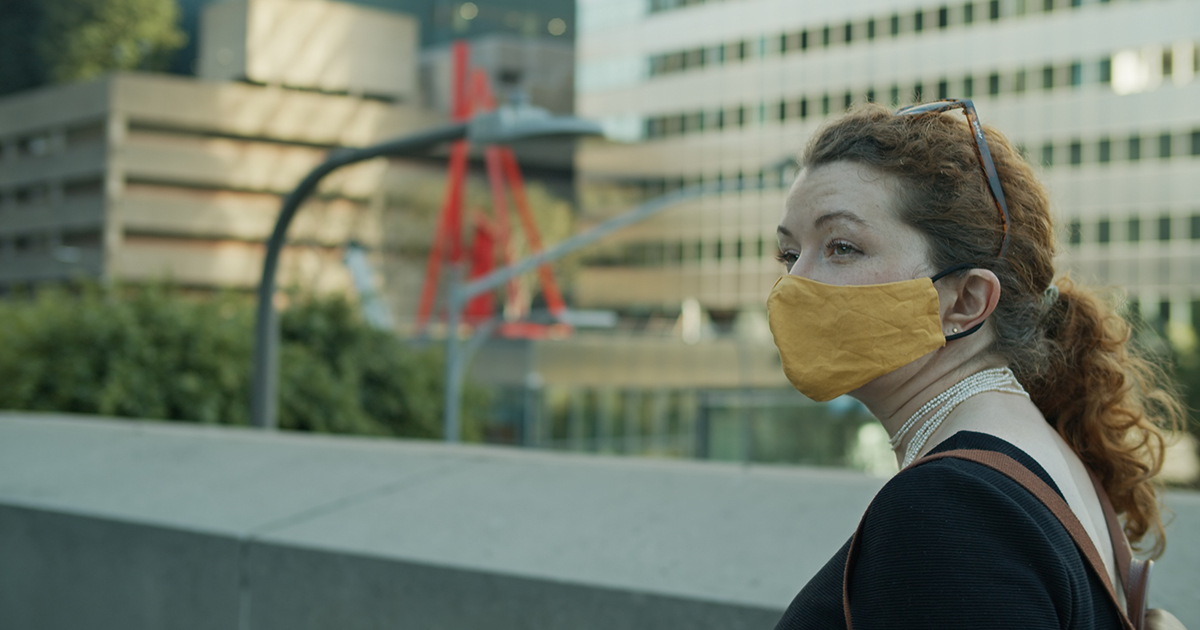
Addressing the Growing Drug Problem in LA: A Deep Look Into the Epidemic
Photo from Getty Images
Originally Posted On: https://magnoliarecoverycare.com/blog/growing-drug-problem-los-angeles/
The city of Los Angeles isn’t known for the glamorous Hollywood stars and entertainment industry alone. Although there are many benefits to visiting Los Angeles, the city has issues with drug addiction.
The drug scene in Los Angeles has long been a problem. The large population and a culture of partying, nightlife, and poverty created an environment where drug use is not only prevalent, but it’s easy to fall into the trap of addiction.
There are thousands of people in Los Angeles who have been influenced by substance use disorder. People from all walks of life, backgrounds, and circumstances get pulled into the cycle. Whether it’s heroin, meth, or cocaine, many people who start using drugs do not know how to stop.
Unfortunately, drug use is on the rise in LA, with an increase in new users and overdoses. This has led to many problems, including a strain on health care resources and families struggling to find help for their loved ones. Though the problem may seem insurmountable, some steps can be taken to address this growing epidemic.
So Technically What Is “Drug Abuse”?
According to the National Institutes of Health, drug abuse is the use of any drug that a doctor or medical professional does not prescribe. The term “drug abuse” is also used to refer to the improper use of legal drugs.
Michael Jackson and Kurt Cobain are high-profile cases of substance abuse ending in tragedy. However, despite these instances being perfect examples why one should avoid substance abuse, it seems that more and more people are dying from overdoses, especially with drugs like fentanyl.
Drug Abuse in Los Angeles
Drug abuse has reached epidemic levels in the United States. Tens of thousands of people are affected by substance use disorder in Los Angeles alone, with drug overdose being the third-leading cause of injury death and premature death.
Unfortunately, thousands of people use drugs in LA daily. People who are most likely to be affected by drugs in Los Angeles are not just those from lower-income backgrounds. Their use tends to be spotlighted because they also have limited opportunities for education and employment. However, the statistics aren’t very clear.
Drug abuse is a complicated problem, with many factors that contribute to its existence. There are countless reasons people turn to drugs, but some of the most common are peer pressure, curiosity, relationship problems, and boredom.
Because drug usage can cause severe psychological dependence, recovering from substance use disorder is no easy task. The majority of people who are trying to recover end up relapsing at some point.
Drug Addiction in Los Angeles: A Growing Problem
The problem with drugs in LA is that it’s not just the people who are using them who are affected. There is a ripple effect that reaches every part of society with negative consequences. For families, drug use can be complicated. Family members may feel that they have to take on the responsibility of caring for a loved one who is addicted, which can be overwhelming and lead to frustration and resentment.
Drug addiction can cause problems at work, leading people to miss days or lose their jobs. Substance use disorder is a strain on employers who must deal with absenteeism and drug-related accidents or injuries. Drug abuse is a severe problem in Los Angeles, and it’s essential to be aware of the consequences and how this issue can affect the lives of everyone in a family unit.
The Most Commonly Abused Drugs in LA
No matter the reason someone uses drugs, there are always risks. The most common drugs that people in Los Angeles abuse are heroin, opioids, cocaine, meth, marijuana, and alcohol.
Opioids
Opioids are a class of drugs commonly used to treat pain. The risk of an overdose is one of the most serious.
Some common signs that someone has overdosed on opioids include:
- Slowed breathing or lack of breath
- Confusion
- Nausea
- Vomiting
Cocaine
Cocaine is the most commonly used stimulant drug in the world. It has a powerful effect on the brain and can cause changes in mood, behavior, and energy levels.
Some of these effects include:
- Elevated body temperature
- Dilated pupils
- Higher blood pressure and heart rate
Marijuana
Marijuana is the most commonly used drug in the United States. Though it has a complicated status as far as its federal schedule, it is still technically a drug. Like any drug (caffeine or alcohol, for example), it can be abused or used in a healthy way, depending on the situation. It can be smoked, eaten, and vaporized.
Some of its effects include:
- Dry mouth
- Rapid heart rate and palpitations
- Panic attacks or feelings of paranoia
Heroin
Heroin is an opioid that has a rapid effect on the brain. It can be injected, sniffed, and smoked.
Some of its effects are:
- Depression, anxiety, mood swings
- Agitation, irritability, hostility toward others
- Hallucinations, paranoia
- Weight loss
Alcohol
Alcohol is one of the oldest drugs in existence and can be addictive. It is a depressant that affects the brain, body, and behavior.
Some common effects of alcohol include:
- Slurred speech
- Impaired judgment and decision-making ability
Boredom or curiosity may lead to drug experimentation, but it can become a problem when someone becomes addicted. Therefore, it is important for people who abuse any drugs to seek professional help. Many support groups in the city can offer help and guidance when it comes to overcoming addiction.
In Los Angeles, drug abuse is a serious problem that can influence anyone in the community. Therefore, it’s important to be aware of how drugs influence people and the signs and symptoms of someone with substance abuse disorder.
Drug Overdoses in Los Angeles During the COVID-19 Pandemic
Drug overdoses are an unfortunate side effect of the COVID-19 pandemic. Some people turned to drugs to cope with isolation and depression while they were confined to their homes for months on end.
COVID-19-Related Overdose Statistics From County of Los Angeles Public Health
 Photo from Getty Images
Photo from Getty Images
- Overdose deaths caused by fentanyl increased 136% during the pandemic.
- Overdose deaths caused by methamphetamine increased 79% during the pandemic.
- The highest accidental death rate caused by drug overdoses disproportionately impacted the African American community, while most overdoses were among white people.
- The highest accidental drug overdose deaths were seen in the age brackets of 25-34 and 45-64.
- Accidental overdose death rates per 100,000 increased 48.4% among males and 64.7% among females in 2020.
Additional Drug Statistics in Los Angeles, CA
Los Angeles County has experienced an increase in accidental drug overdose deaths during the past 11 years. However, there was a significant bump in this trend in 2018 attributed to the increase in methamphetamine and fentanyl use, triggering more deaths from overdoses.
There was a 46.8% increase in Los Angeles drug overdose deaths in 2020 compared to 2019.
Why Drug Rehab Is Important
Drug addiction is the compulsive use of either legal or illegal drugs. Drugs, whether prescribed or not, can change how the brain works—meaning it is difficult to stop using them without help.
Rehabilitation centers offer treatment for recovering addicts. They teach people how to start living a substance-free life and how to find support when they need it. They offer programs to help those in recovery resist relapse and combat cravings.
Drug abuse has more serious ramifications than just getting high—it could put someone’s immune system at risk or cause physical problems down the line. A drug addict needs professional help because withdrawal can be dangerous. It’s important to go through rehab so that a person doesn’t have to deal with the pain of withdrawal symptoms.
The most important thing someone can do is seek help. Withdrawal from some substances can be fatal if not overseen by a professional. The best way to get over a drug problem is to go through rehabilitation at a personalized treatment center and use support groups such as Narcotics Anonymous and Alcoholics Anonymous to help people stay off drugs.
Why Personalized Treatment Care Helps
A personalized treatment care plan is based on the person’s experience with substance use disorder, the severity of the addiction, and what they are willing to commit to recovery. These plans have much higher outcomes. The goal of this treatment is to help a person stay away from drugs long-term. Personalized treatment doesn’t just have one solution for everyone—it is unique to each person’s needs.
These treatment plans are the best for helping treat people with substance use disorder because they aren’t one size fits all. Unfortunately, one-size-fits-all treatment plans often fail because they don’t consider each person’s unique needs.
A personalized treatment care plan helps people work through their addiction challenges and learn how to live life without drugs. In addition, people making a long-term commitment to recovery need personalized treatment plans to help them through the process.
Personalized Treatment Care Is Important
- A customized recovery program is the best way to recover from addiction because it isn’t cookie cutter. Cookie-cutter programs are designed for everyone but don’t take into account the individuality of each person.
- A personalized treatment care plan helps people work through their challenges and learn to live life without drugs.
- A personalized treatment care plan makes a long-term commitment to recovery possible because it is designed based on the needs of each person in recovery. This type of treatment helps people to stay off drugs for the long term.
Benefits of Individualized Care From American Institute
- Expert, caring providers: Our staff is composed of experts in the field. With decades of experience, they know how to help people with their specific needs and concerns.
- Individualized treatment: We don’t believe in a one-size-fits-all approach to drug and alcohol dependence. Each treatment plan will be as unique as each person is.
- Proven success: We’ve helped thousands of people find recovery and set them on the path to a healthy, drug-free lifestyle.
- Peaceful, private setting: We help with recovery from addiction in a peaceful, safe place, free from the stress of everyday life, where each person has time to focus on their recovery.
- Holistic wellness-focused healing: Our treatment programs are designed to help people discover the root cause of their disorder and overcome it with holistic, drug-free methods.
- Medication-assisted treatment: Our doctors are experts in prescribing medications that can help reduce cravings and withdrawal symptoms.
- Family-focused services: We realize that addiction doesn’t just affect the person suffering, but their family too. So, our work with families is designed to help everyone heal together.
- Handicap-accessible facilities: We are committed to helping people of all abilities. That’s why our treatment center is handicap-accessible, so everyone can focus on getting better.
- LGBTQ inclusive: We welcome people of all sexual orientations and gender identities. Everyone deserves access to high-quality addiction treatment services.
- Dual-diagnosis program: If a person suffers from mental health or co-occurring disorders, our program is designed to help.
Personalized Addiction Treatment Services in LA

Magnolia Recovery Care is committed to helping people of all backgrounds and abilities, so everyone can focus on getting better. Our staff includes experts in the field with decades of experience who know how to help people with their specific needs and concerns. As a result, we have helped thousands of people find recovery and set them on paths toward a healthy, drug-free lifestyle using personalized care plans that are as unique as each person we serve.
Cookie-cutter treatment programs that don’t consider each person’s individuality often fail. Personalized treatments help people make and keep long-term commitments to recovery. A customized recovery program gives people a safe, peaceful place to focus on getting better.
Our treatment programs are designed to help people discover the root cause of their substance use disorder and overcome it with holistic, drug-free methods. We understand that everyone’s recovery journey is different.
